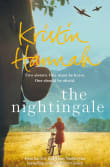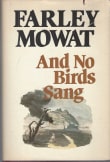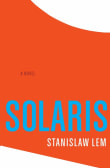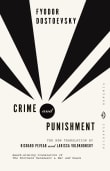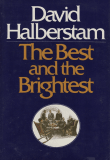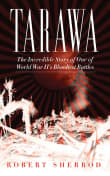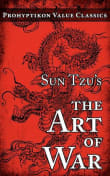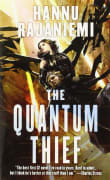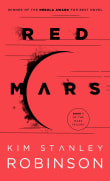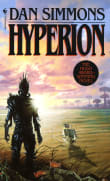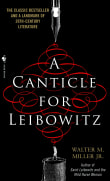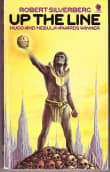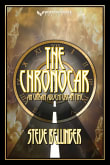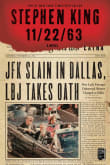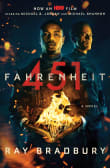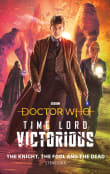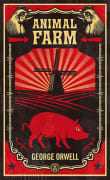Slaughterhouse-Five
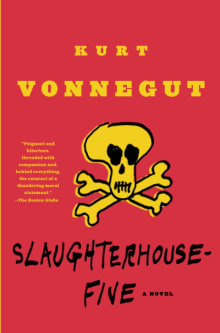
Book description
A special fiftieth anniversary edition of Kurt Vonnegut’s masterpiece, “a desperate, painfully honest attempt to confront the monstrous crimes of the twentieth century” (Time), featuring a new introduction by Kevin Powers, author of the National Book Award finalist The Yellow Birds
Selected by the Modern Library as one of the…
Why read it?
28 authors picked Slaughterhouse-Five as one of their favorite books. Why do they recommend it?

Vonnegut’s book is a unique combination of satire, science fiction, and raw war critique. Billy Pilgrim, the protagonist, lives out the trauma of surviving the Dresden bombing by becoming "unstuck in time," drifting through different moments of his life, from past to future. This strange, nonlinear structure mirrors how we process trauma in fragments and waves, never in a neat, chronological order. The randomness of death, the meaninglessness of war—all these themes come together in a way that’s both absurd and deeply moving. As we witness terror and violence continually unfold across the globe, the echoes of Slaughterhouse-Five feel ever-present.…
From Julia's list on war, power, and the fragility of humanity.

Maybe you’ve read this book, but maybe you haven’t. The kids like me who used to carry the 95¢ Dell paperbacks are now dead or thinking about it.
The author, Kurt Vonnegut, was an American prisoner of war and spent 24 hours underground in a meat locker during the Allied firebombing of Dresden, Germany. He said of his experience the bombing “killed 250,000 people in 24 hours and destroyed all of Dresden—possibly the world’s most beautiful city. But not me.” It’s fair to say that this book was his imagination’s way of dealing with the war. “One” acts as a…
From Jeffrey's list on big imagination and creative punch.

I first read Slaughterhouse-Five as a callow college student, concluding with the certainty of youth that this was a brilliant but weird amalgam of dark humor and sci-fi wrapped inside an autobiographical anti-war screed. However, my real ‘duh’ moment came after rereading the book decades later.
The opening line, “Listen: Billy Pilgrim has come unstuck in time” – tells you everything you need to know: It’s about PTSD, written from the inside looking out. Like Billy Pilgrim, I could see myself time-jumping and being abducted by aliens to escape the trauma of war. Interestingly, the term “PTSD,” the acronym for…
From Mel's list on resilience and surviving the horrors of World War II.
If you love Slaughterhouse-Five...

When I say Slaughterhouse-Five is funny, people eye me like I’m a monster. But it is. The New York Times even has my back on this.
Is the novel also gut-wrenchingly tragic and horrifying? Of course. It’s one of the most potent stories ever written, and I’m not sure I’ve encountered anything whose biting satire eviscerates the absurdity of war (and of existence) so well.
Vonnegut balances humor and grief on the head of a pin: “Billy turned on the Magic Fingers, and he was jiggled as he wept.”
From Chris' list on hilarious books that rip your heart from your chest.

I got hooked on Vonnegut after reading his short story, Harrison Bergeron. Most of his books straddle the genres of literary fiction and science fiction, with just enough information to make the science believable.
In Slaughterhouse Five, there’s a time travel element, but how it happens really isn’t as important as where the main character ends up. With some historical content about World War II, which is another subject I enjoy, this book will take you on an interesting ride as the character becomes unstuck in time.
I do recommend anything by Kurt Vonnegut.
From Leon's list on for readers who don’t think they like science fiction.

Slaughterhouse-Five is my favourite book of all time, and the book I would most like to have written myself (if only I had Vonnegut’s skill and didn’t have to live through the fire-bombing of Dresden).
Dealing with the atrocities of war while throwing in a mix of aliens and time travel, and regularly breaking the ‘fourth wall’, it’s a novel that shouldn’t work... but works superbly because of that.
Hilarious and tragically sad, mind-bending but soundly logical, the story of Billy Pilgrim and how he is kidnapped by Tralfamadorians to be mated in a zoo with a beautiful movie star…
From Paul's list on time-bending that turn reality inside-out.
If you love Kurt Vonnegut...

Slaughterhouse-Five is about A LOT.
Consciousness, memory, our relationship with time, and free will—things that I’ve obsessed over since my days as a philosophy student. It’s also about trauma—in this case, being present at the fire-bombing of Dresden in World War Two.
Some months ago, someone close to me (who had long been suffering from PTSD) died by suicide. This great book comes directly from a place of suffering from PTSD and spoke to me for that reason. And for a book as dark as it is, it’s utterly hilarious.

I rediscovered the novel I first read in my high school AP English class and got me binge-reading Vonnegut through college.
Musician Elle Cordova describes it this way, “A soldier’s life playlist is stuck on shuffle.” And like a shuffled playlist, it brings many seemingly discordant elements together. Fantastic science fiction with brutal descriptions of war. Brilliant humor with heartbreaking drama. And all the pieces make sense when brought together.
Vonnegut showed me what is possible with narrative and combining comedy and tragedy. He is an inspiration for my own novels.

This classic appears regularly on my read-this-year list – I can’t get enough of it.
Vonnegut describes the horror and absurdity of war through a unique speculative fiction lens that punches me in the gut every time. Based on the WWII firebombing of Dresden, which Vonnegut personally experienced, the story makes its case in crisp, rye prose without ever preaching.
Billy Pilgrim, the main character, is one of my all-time favorite fictional characters; I just wish I knew whether he actually traveled through space and time to Tralfamadore, or if his PTSD-riddled mind was playing tricks on him.
If you love Slaughterhouse-Five...

I loved Slaughterhouse-Five when I read it as a teenager, and I still adore this great anti-war novel.
Like Twain, Vonnegut uses satire to weaken the hold of false moralities. His targets are war, trauma, cruelty, and death. Not surprisingly, given these concerns, the humor is dark, although it is lightened by the author’s wisdom and compassion.
Vonnegut uses techniques like metafiction and non-linear time to satirize conventional notions about everything from free will and predestination to the notion that there are good wars. It is one of the best and most provocative satires ever written, and I urge anyone…
From Michael's list on satires for crazy times.
Want books like Slaughterhouse-Five?
Our community of 12,000+ authors has personally recommended 100 books like Slaughterhouse-Five.




